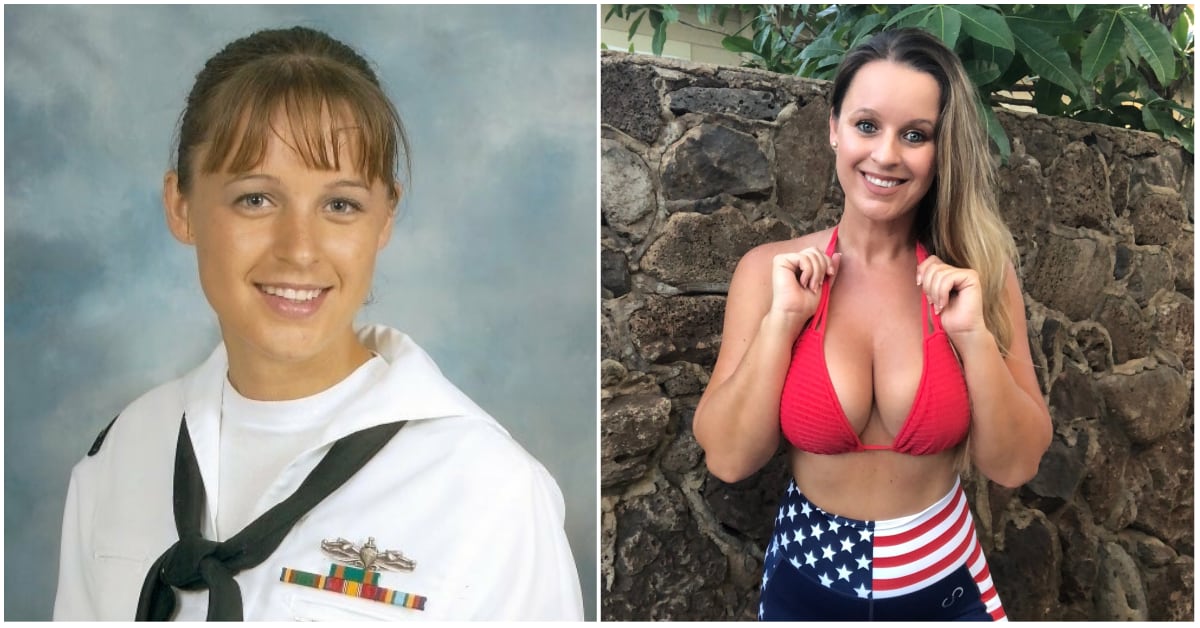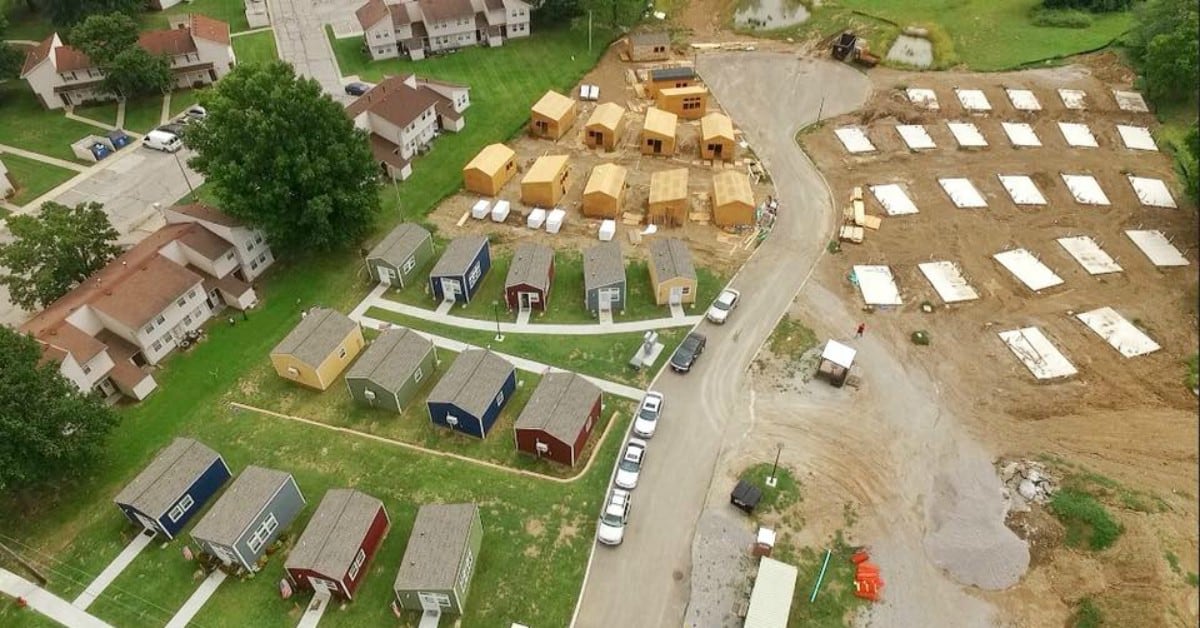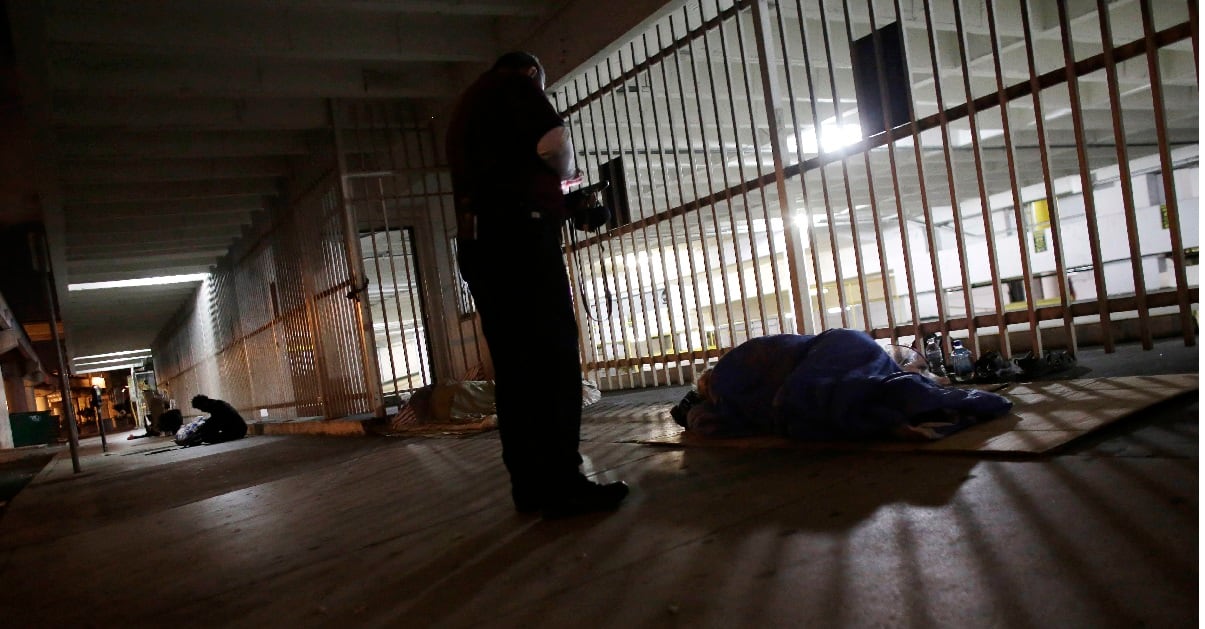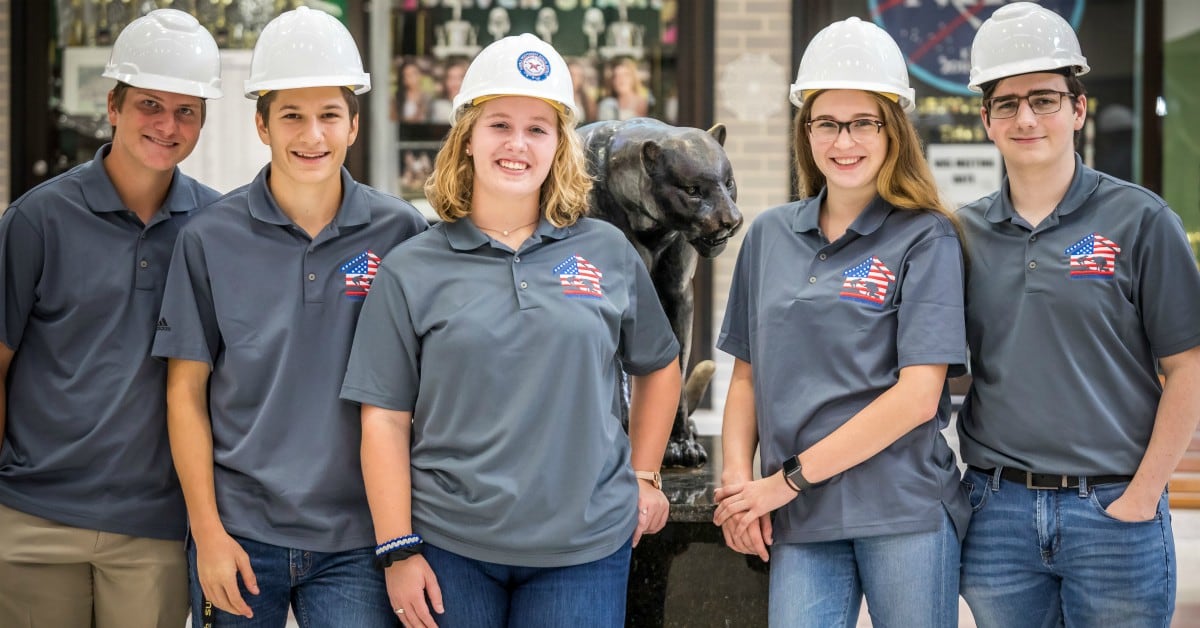When asked how he was doing in a recent interview, Henry Owens didn’t hesitate to answer: “Blessed.”
Until recently, the 32-year-old Navy veteran was living on the streets of Kansas City, Missouri, struggling to keep a job and lacking close family members or friends who could lend him a bed to sleep on, or even a couch.
“My PTSD just kind of kicked in wholeheartedly,” he said. “I was struggling and dealing with that, and that just kept me in a cycle of not being independent and taking care of myself.”
But today, Owens lives in a house in a brand new neighborhood, surrounded by a community of people who understand exactly what he’s been through.
The fact that the home is a mere 240 square feet doesn’t faze him.
“I have everything I need,” he said.
RELATED

Owens is one of 13 formerly homeless veterans who have started new lives on a five-acre lot in Kansas City called Veterans Village, an initiative of the nonprofit Veterans Community Project. Besides tiny houses of 240 or 320 square feet, the organization also provides services to help the former service members get back on their feet.
“At least 60 percent of the people that we serve, we’re serving them because of a poor transition from the military,” said Chris Stout, one of four Iraq and Afghanistan veterans who founded the organization.
Stout said their original idea was to purchase an old building and convert it into a shared transitional living space for homeless veterans, similar to other types of shelters. But when someone told Stout about tiny houses — in vogue a la the TV shows “Tiny House Hunters” and “Tiny House Nation” — he was sold.
The 240-square-foot homes come furnished with a twin-sized bed, desk, kitchenette, bathroom and “everything you kind of need to live on your own,” said Stout, likening it to a small studio apartment. The 320-square-foot models, designed for veterans with families, can fit a queen-sized bed, sleeper sofa and a triple bunk bed.
“It was housing with dignity,” he said. “It gave them their own space, a sense of security.”

That made all the difference for Owens. Before finding out about Veterans Village, he’d tried staying in shelters. More recently, he had been sleeping in a park where his friend, also homeless, was shot and killed, just days after Owens moved into his new home.
“It actually saved my life,” he said.
Model homes
With 13 more tiny houses currently under construction, Veterans Community Project eventually plans to build a total of 49 homes on the Kansas City property, along with a community center that will house medical, dental and case management services. The nonprofit is also eyeing expansion in the St. Louis, Nashville and Denver areas.
And, unknowingly, their efforts were also the likely inspiration for a group of high school students in Texas who recently took on a similar project.
Al Segura, an assistant principal at Summer Creek High School near Houston, said he was scrolling through Facebook on a sleepless night in 2017 and happened across a video of a nonprofit building a tiny-home community for homeless veterans. While Segura can’t remember the name of the organization in the video, he remembers it was in Kansas City, and all other signs point to Veterans Community Project.
“The thought just came to me, ‘Wouldn’t it be neat if kids could do that?’” he said.
Segura got another high school in the district on board, and after months of planning, the architecture students at both schools recently started work on two tiny homes that they will donate to homeless veterans.
“It’s really awesome to be able to use what I’ve learned in the classroom and be able to apply it to the real world and helping real people,” said Sarah Dalby, one of the student architects on the project at Kingwood Park High School.
The schools plan to involve students across several departments — art students to help decorate the inside, welding students to make grills for outside, English students to write the veterans’ stories and so on.
“Right now, it’s just two high schools, but we really want to expand that to the rest of the schools in our district, to our city, state and hopefully the country so that we have tiny home communities everywhere,” Dalby said. “If we’re all doing that everywhere all over the country, the question that we’ve posed a lot is, ‘How many homeless will there be left?’”
Each high school is planning to finish its tiny house by the end of the school year. The hope is to then hand them over to a community partner to manage a village of tiny homes like the one that inspired them.
RELATED

‘Anybody can do this’
It’s an admirable goal — one Stout of Veterans Community Project is proud to have inspired.
“For us, that’s what it’s all about, right?” he said. “We want everybody to know anybody can do this.”
As for Owens, he said it’s good to see teenagers and others embracing the Veterans Community Project model.
“It just shows that VCP is a cornerstone in veteran homelessness,” he said. “They have pretty much every avenue covered. We have a case manager we meet with every week. We talk just personal. We talk about transitioning into what we need to be. Projects like this is what’s needed.”

Now that he’s getting the help he always needed after the military, Owens has started his own lawn care business and is finally regaining pride in his service after years of feeling betrayed and frustrated by the way his career ended in 2007.
“It was a struggle to say, ‘I’m a veteran,’” he said. But now, “being around comrades that kind of understand the difficulties of adjustment to civilian life” has helped change that.
“You have neighbors who understand what you’ve been through, what you’re going through and you have that support to get you through,” he said. “It’s a mind frame of knowing I can make it now.”
Military Times contributor and former reporter Natalie Gross hosts the Spouse Angle podcast. She grew up in a military family and has a master's degree in journalism from Georgetown University.




